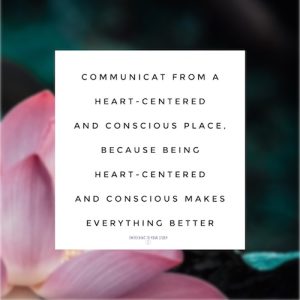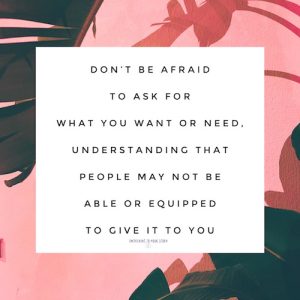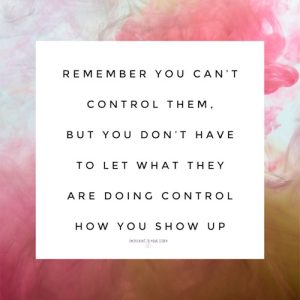 I got a wonderful question last week asking how to be a better communicator. So today we are going to be look at how to communicate from a heart-centered and conscious place, because being heart-centered and conscious makes everything better. I want to offer you 8 tips to help you become a better communicator.
I got a wonderful question last week asking how to be a better communicator. So today we are going to be look at how to communicate from a heart-centered and conscious place, because being heart-centered and conscious makes everything better. I want to offer you 8 tips to help you become a better communicator.
Whether you want to feel better while you participate in conversations, have better or more meaningful conversations, get your point across more effectively, or just have a richer social dynamic with the people around you, being heart-centered and conscious will help you do just that.
Before we get to the 8 tips let’s start by talking about what heart-centered and conscious means and how to apply it to your life. These three videos and blogs will be foundational for you:
- Emotional Tool – Stream Kayak Principle
- The Power of Your Brain – Negative and Positive Bias
- Creating a Growth and Self-Love Mindset
I often talk about the state of being in your own alignment as a way of describing how it feels to be both conscious and centered in your emotional heart. It’s when your heart, mind, and body are all awake and working together with the world around you.
I teach the idea of consciousness in the super tangible the Stream Kayak Principle, which is why it is the first video and blog I referenced. Knowing where you are on the river of life and in relationship to your boat, affects how you communicate.
 How you are feeling in your life also affects how you communicate. That is why the next two videos and blogs are so valuable. When you can hone the power of your brain to create a positive bias you will be stepping into a place where everything feels a little bit more possible and even better. Creating a growth and self-love mindset helps you take that bias even deeper.
How you are feeling in your life also affects how you communicate. That is why the next two videos and blogs are so valuable. When you can hone the power of your brain to create a positive bias you will be stepping into a place where everything feels a little bit more possible and even better. Creating a growth and self-love mindset helps you take that bias even deeper.
You are always going to be a better communicator if you are in your own personal alignment and feeling tapped into that conscious, heart-centered place within.
We have 4 Internal Tips and 4 External Tips to help improve your communication skills.
Internal Tips:
- Be Present
- Know What You Really Want To Say
- Don’t Be Afraid To Ask For What You Want Or Need Understanding That People May Not Be Able Or Equipped To Give It To You
- Know When To Say Nothing
Being Present: This means allowing your heart and mind to focus on the moment that you are in. Turning off all of the external and internal chatter outside of the conversation will help you be present for the conversation you are creating with the other person. That chatter could be past conversations you have had that didn’t go well, a limiting belief that says that you aren’t a good communicator, using your phone to focus on other things, or being distracted by something else in your environment. Being a good communicator means being there for the conversation with all of your attention.
Knowing What You Really Want To Say: Intention And Tone- knowing what you really want to say in the conversation gives you the advantage of creating clarity. You may not fully know how you want it all to come out, but know the intension behind it can help you as the conversation unfolds. Having a firm grasp on that intention also helps you set the tone for how you want to feel and how you want them to feel. Intention and tone will be different depending on what it is you really want to communicate.
 Don’t Be Afraid To Ask For What You Want Or Need, Understanding That People May Not Be Able Or Equipped To Give It To You: Have you ever been in one of those contestations where you want something from someone but you never actually ask for it and then it all goes south because you felt unheard, validated, or seen? It is good to ask for what you want or need in a conversation; actually doing so is healthy. However you have to realize the other person might not be willing or equipped to give you what you want or need. They might not be able to see you, validate you, hear you, or provide you with what you are asking for; and that’s ok. Good communication doesn’t mean everyone get’s what they want it just means you were able to create a dialog where your intention and tone were executed and it felt good for you.
Don’t Be Afraid To Ask For What You Want Or Need, Understanding That People May Not Be Able Or Equipped To Give It To You: Have you ever been in one of those contestations where you want something from someone but you never actually ask for it and then it all goes south because you felt unheard, validated, or seen? It is good to ask for what you want or need in a conversation; actually doing so is healthy. However you have to realize the other person might not be willing or equipped to give you what you want or need. They might not be able to see you, validate you, hear you, or provide you with what you are asking for; and that’s ok. Good communication doesn’t mean everyone get’s what they want it just means you were able to create a dialog where your intention and tone were executed and it felt good for you.
Know When To Say Nothing: This one is an art that takes practice. Sometimes being a good communicator means knowing when to keep your thoughts to yourself so that you make room for the conversation to develop from all sides. We often want to race to fill empty space or push our ideas or beliefs on the other person. This can actually shut them out of the conversation. Learning when to listen rather then talk can create a healthy back and forth in the conversation. Now this isn’t shutting down and not saying anything as a reaction to what is going on in the conversation. This is actively leaving a little room for the conversation to evolve.
External Tips:
- Be Interested And Curious
- Hold Space With Respect And Appreciation
- Actively Listen
- Ask Engaging Questions
Be Interested And Curious: This may sound like a given but it takes focus. The tendency is to talk about yourself and that can be fine. However if you go into the conversation interested and curious about the other person and build from there, they will walk away feeling good even if they don’t really know why they feel good. From that place of interest in the other person you will still have room to communicate the things you want to say but the other person will be more engaged because with your interest in them you have pulled them deeper into the conversation.
 Hold Space With Respect And Appreciation: Think of respect and appreciation as a container for your conversation. If the words that are being strung together start to meander outside of that container you have the power to bring them back in. You know what respect and appreciation feel like and so you can tell when they are not present. Whether you agree with what they are saying or not, you always have the power to be respectful. This is true even if they are not being respectful. Remember you can’t control them but you don’t have to let what they are doing control how you show up. Also keeping in mind that you don’t have to think the same to have a good conversation.
Hold Space With Respect And Appreciation: Think of respect and appreciation as a container for your conversation. If the words that are being strung together start to meander outside of that container you have the power to bring them back in. You know what respect and appreciation feel like and so you can tell when they are not present. Whether you agree with what they are saying or not, you always have the power to be respectful. This is true even if they are not being respectful. Remember you can’t control them but you don’t have to let what they are doing control how you show up. Also keeping in mind that you don’t have to think the same to have a good conversation.
Actively Listen: This means verbally staying engaged in the conversation. It feels good when people repeat things you are saying because it lets you know they are listening. So taking key thoughts or ideas from what they are saying and repeating it back to them for clarity or emphasis help strengthen the dialog you are having. It also feels good when you hear your name woven into the conversation. So weaving their name into the conversation can also help the other person know you are paying attention to what they are saying. An example of this if someone was in conversation with me about taking a walk by the beach. “Alicia you are joking, I can’t believe you saw a whale breach right in front of you, that’s so cool.” They said my name for emphasis and repeated a detail that I describe letting me know there were really with me in the conversation. Now you don’t want to keep saying the persons name over and over again but saying it everyone and a while shows you are actively engaged.
 Ask Engaging Questions: This helps you be an active participant in the conversation. Whether you are having a conversation where you are trying to get you point across or just participating in a friendly dialog with someone asking engaging question is an easy way to deepen the conversation. It not only builds your understanding but it keeps them engaged in the conversation as well. If we use the pervious example about the beach walk the next statement could be, “Have you ever seen something like that before?” That questions shows you’re engaged and curious about their experience. If you are trying to get a point across asking, “does that make sense” or “did I explain that in a way that makes sense” keeps the other person engaged in that you are saying.
Ask Engaging Questions: This helps you be an active participant in the conversation. Whether you are having a conversation where you are trying to get you point across or just participating in a friendly dialog with someone asking engaging question is an easy way to deepen the conversation. It not only builds your understanding but it keeps them engaged in the conversation as well. If we use the pervious example about the beach walk the next statement could be, “Have you ever seen something like that before?” That questions shows you’re engaged and curious about their experience. If you are trying to get a point across asking, “does that make sense” or “did I explain that in a way that makes sense” keeps the other person engaged in that you are saying.
Ok, those are my 8 tips to help you become a better communicator as well as the foundations ideas about being conscious and in your own inner, heart-centered alignment. So go watch the other videos and practice, practice, practice. And it’s ok if it takes time to get the hang of it. As long as you are learning and trying, that is considered growth and evolution and that’s wonderful.
Let me know if you have questions, I am here for you. Subscribe to my emails and my YouTube channel, like and share the video and blog, and until next time, know I am holding a place of love for you where your ability to be a strong communicator is undeniable.



